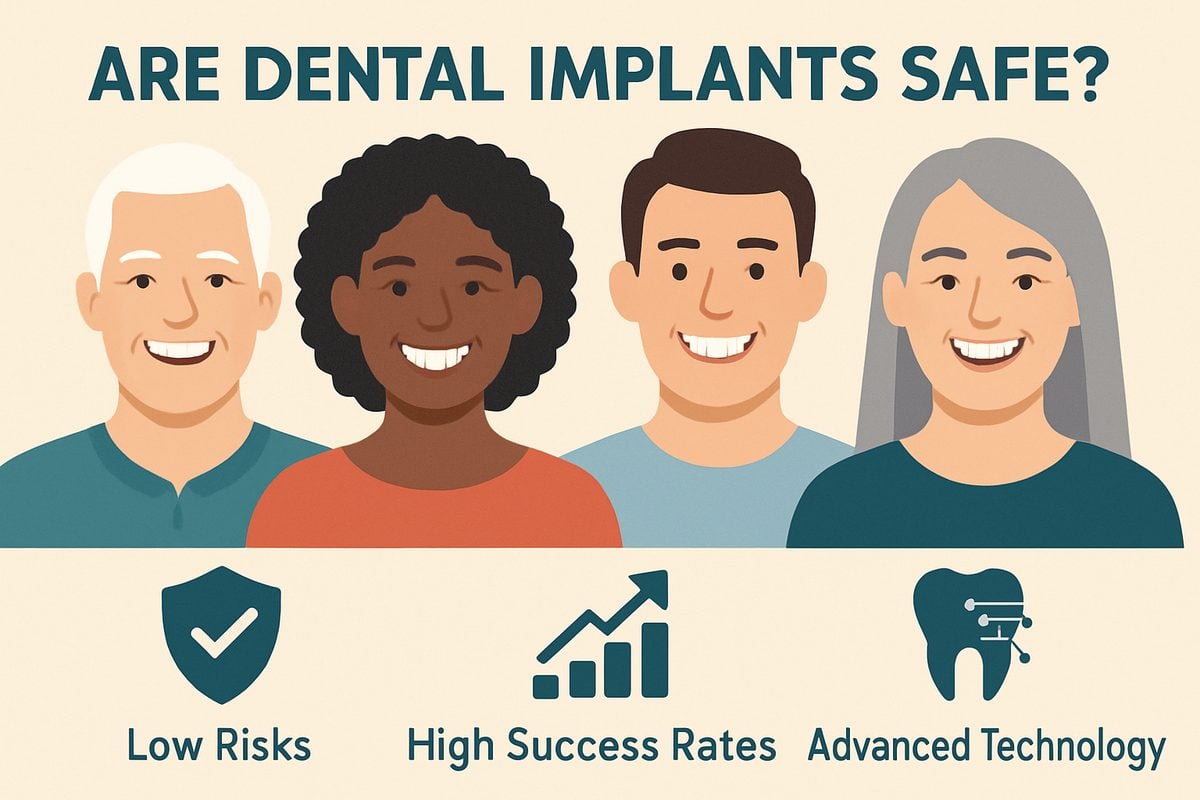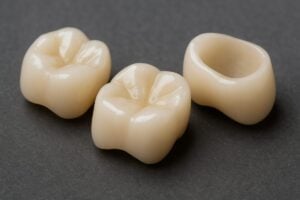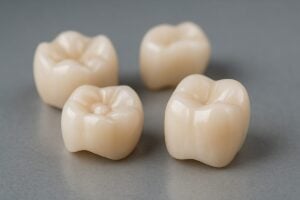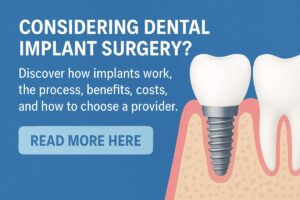Dental implants safe in Louisville is a common question — yes, they are generally safe for most healthy patients. This post covers risks, benefits, who’s a good candidate, safety steps dentists take, and when to seek help.
What are dental implants?
Dental implants are small titanium posts placed into the jawbone to replace missing tooth roots. An implant supports an abutment and a crown (or bridge/denture) to restore chewing and appearance. Many patients ask if dental implants safe in Louisville are a good long-term solution — for most, they provide stable, natural-feeling teeth.
Are dental implants safe? Evidence and success rates
Overall, dental implants have high success rates, often above 90–95% in healthy patients. Long-term studies show excellent survival when placed with proper planning and maintenance. Success depends on bone quality, overall health, oral hygiene, and surgeon experience.
Common risks and complications
Infection at the implant site
Infection can occur if bacteria enter the surgical area. Dentists prevent this with sterile technique, antibiotics when needed, and clear home care instructions. Early infections are usually treated successfully.
Nerve or tissue injury
Rarely, implants placed too close to a nerve can cause numbness or tingling. Careful planning and imaging greatly reduce this risk, and most nerve issues resolve; persistent problems need prompt evaluation.
Implant failure and bone loss
An implant can fail to bond with bone or become loose over time due to poor bone, uncontrolled diabetes, smoking, or severe gum disease. Bone grafts and treating health issues before surgery lower failure risk.
Sinus problems (upper jaw)
Upper-jaw implants can penetrate the sinus if placed without proper planning. Solutions include sinus lift procedures or adjusted implant placement to avoid sinus complications.
How dentists keep dental implants safe
Careful evaluation and medical history
Dentists review medical history, medications, smoking, and conditions like diabetes to assess risk and plan care.
Advanced imaging and planning
CBCT 3D scans map bone and nerve positions so implants are placed accurately and safely.
Sterile surgical protocols and anesthesia
Procedures use sterile technique and offer local, oral, or IV sedation depending on case complexity to control pain and reduce infection risk.
Follow-up care and monitoring
Post-op checks, hygiene instructions, and regular cleanings help catch and treat problems early to protect the implant.
Who is a good candidate for implants?
Ideal candidates are in good overall health, have enough jawbone, and don’t smoke or are willing to quit. Patients with low bone can often get implants after bone grafts or other preparatory steps.
Recovery: what to expect and when to call your dentist
Healing usually takes a few weeks for soft tissue and a few months for bone to fuse to the implant. Expect mild pain, swelling, and a soft-food diet early on. Call your dentist for fever, severe pain, persistent numbness, heavy bleeding, or pus-like discharge.
How Harmon Dental Center helps make dental implants safe
Dr. Bradley Harmon brings years of training and experience to implant care and emphasizes safety and personalized planning. The office focuses on comfortable, efficient treatment and long-term results.
Technology that improves safety
Harmon Dental Center uses CBCT 3D imaging, Primescan digital impressions, Primemill same-day milling, in-house 3D printers, a full-mouth on-site implant lab, and a fully equipped surgical suite with IV sedation to improve accuracy and safety.
Quick FAQs about safety
Are implants painful?
Most patients report manageable pain with modern anesthesia and pain control.
How long do implants last?
With good care, implants can last decades and often for life.
Can anyone get implants?
Not everyone; candidacy requires an exam and medical review.
Next steps
If you want to know whether dental implants safe in Louisville apply to you, book a consultation for a clinical exam and 3D imaging. Contact Harmon Dental Center to get a personalized plan and answers about your options.






